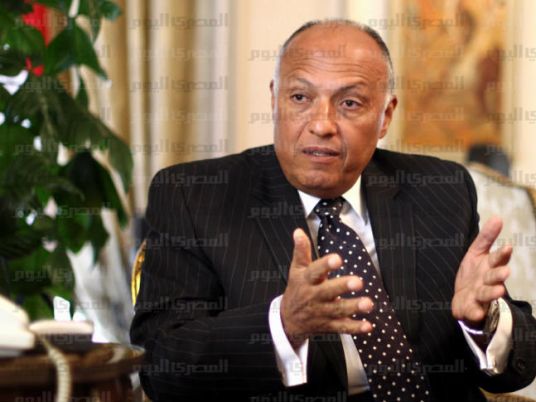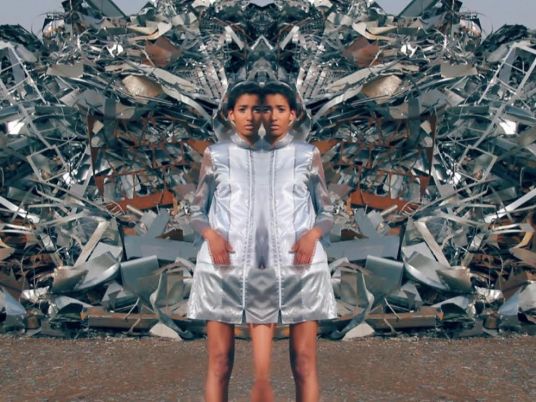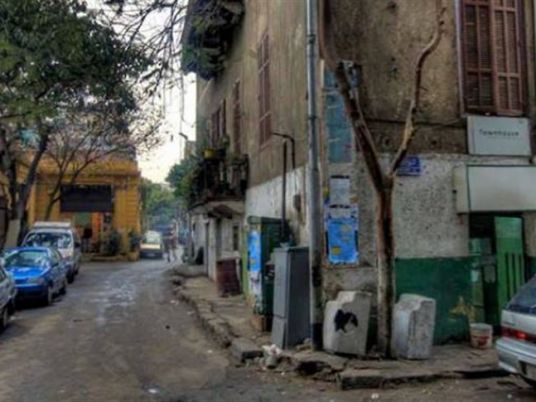Our mothers taught us years ago never to talk to strangers. As a result, we were scared of who is different, who is foreign and who does not belong to the stream of our society. We ended up with a firm prejudice against the "other".
The Capoeira and Hip-Hop workshop in Townhouse is not asking you to talk to strangers; it's asking you to dance with them. The idea behind the workshop is to bring together people from all cultures, nationalities and backgrounds and mix them with a number of refugees who work and live in Egypt. The workshop hopes the social experience of working together towards a dance performance can tear down the walls between cultures.
The workshop is organized by SAWA and Reason and Rhythms Center for Refugees and started on Saturday, 6 of November and will run for two months before an actual performance takes place. The workshop is under the command of three experts: Hip-Hop dancer Naghem Othman, Capoeira instructor Mohamed Tiger and Actors trainer Susan Radwan.
Othman, a funky Sudanese Hip-Hop dancer, was leading the way the moment Al-Masry Al-Youm entered Al-Rawabet Theater. Over 30 participants were following her steps while she ordered the DJ to play the right song. They break down multiple Hip-Hop movements and asks the people on the floor to follow. Two funky teenage African girls followed the beat, and adding their own style to her movements. Othman joked around with them then and watched as they exchanged a funny secret hand shake. At the same time, fifteen Egyptians and twelve refugees stood around talking to each other and preparing for the next dance segment.
“This is the first time SAWA throws a dancing workshop for the refugees,” says Othman. “They asked me to join as a Hip-Hop instructor and I agreed to help them out in their program.”
“We teach anyone who wants to learn here every Saturday until the day of the show,” Othman adds. “But in SAWA headquarters, we are teaching the people of SAWA Hip-Hop dancing every Tuesday as well.”
Tiger added to the motivations behind the workshop.
“We wanted to create a language for these youngsters to understand regardless of their nationalities,” says Tiger. “So we came up with the idea of a Hip-Hop dancing workshop and we added the Capoeira training to it as these two arts goes together in harmony.”
Capoeria, explains Tiger, is an Afro-Brazilian dancing style that was created by African slaves back in the 18th century. The slaves were prohibited from learning any martial arts or owning weapons so they created this dance technique that mixes martial arts with music and dance. In this way, they fooled their masters into permitting them a way to defend themselves.
“We found out about Capoeria in Egypt only lately,” says Tiger. “It is really hard to bring a new style of dance or sports into the Egyptian society, but we are taking steps towards that at the moment, and I’m teaching Capoeira in multiple venues at the moment.”
“They asked for my help to prepare the participants in the workshop by adding a layer of actor training to their experience,” says Sausan Radwan. “The idea is that we are training them to perform, and we need them to be able to stand the stage and be prepared for their first encounter with audience.”
The workshop is based on the volunteer efforts of the trainers, who are welcoming any addition to their workshop. Monyatallah Salah, for example, is a Sudanese voice coach and opera singer, who is helping to teach the participants the right ways to breathe during their performances. “My work is mostly on helping them breath right while dancing,” Salah says.
Tiger says he sees refugees coming to Egypt that are unable to connect with society, as they face difficulties in language and traditions. “Some of them speak only English or French, some of them even speak only their own language,” Tiger points out. “[The participants] created a connection between each other and became one band. They started to understand the value of teamwork and mix their efforts together to success.”
“The idea behind actor training is not to turn the participants to movie stars; these are refugees who are foreigners to the culture and identity of the new country they moved to," Radwan adds. "I believe that my role is to help them mix between their own identity and the one they are introduced to.”
“I believe that when Egyptians and refugees work together in one project, that would allow them to understand them more than when they see them in the streets,” says Othman. “Dancing is the best technique to bring people together, and allow them to share moments and memories that no other experience can.”
Othman hesitated before adding, “people need to understand each other and believe that when they are dealing with a refugee they are dealing with a human being just like them.” She takes a moment and continues. “The major problem here in Egypt is that we have a different skin color, some of the Egyptians would call us black and verbally attack us just because we look different. I don’t know how to solve this, but hopefully, this is a step forward.”




